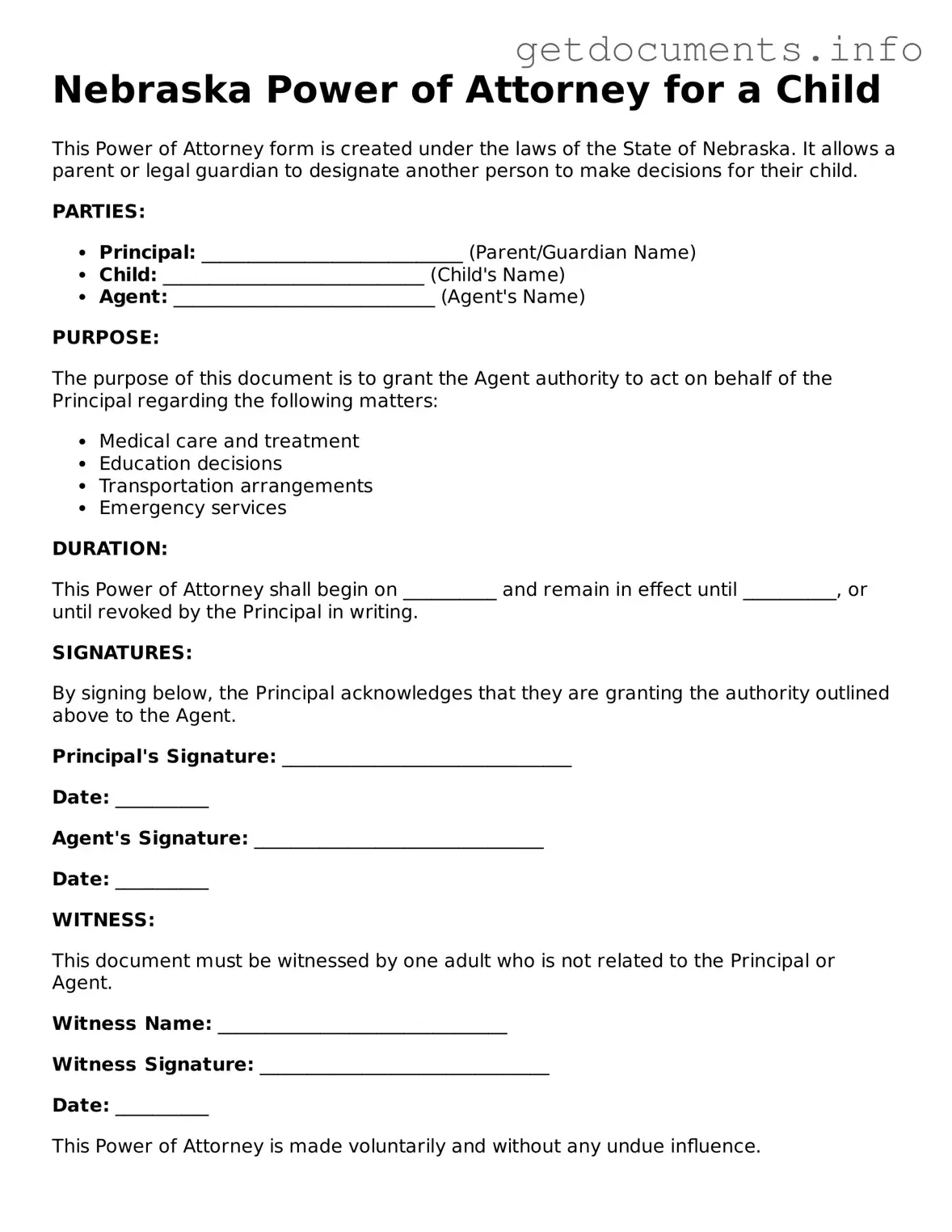Free Power of Attorney for a Child Template for Nebraska
The Nebraska Power of Attorney for a Child form is a legal document that allows a parent or guardian to grant temporary authority to another adult to make decisions on behalf of their child. This form is particularly useful in situations where parents may be unavailable, such as during travel or emergencies. Understanding how to properly utilize this form can provide peace of mind for families, ensuring that a child's needs are met when parents cannot be present.
If you're ready to fill out the form, click the button below.
Access Power of Attorney for a Child Editor

Free Power of Attorney for a Child Template for Nebraska
Access Power of Attorney for a Child Editor
Got places to be? Complete the form fast
Fill out Power of Attorney for a Child online and avoid printing or scanning.
Access Power of Attorney for a Child Editor
or
⇩ PDF File
